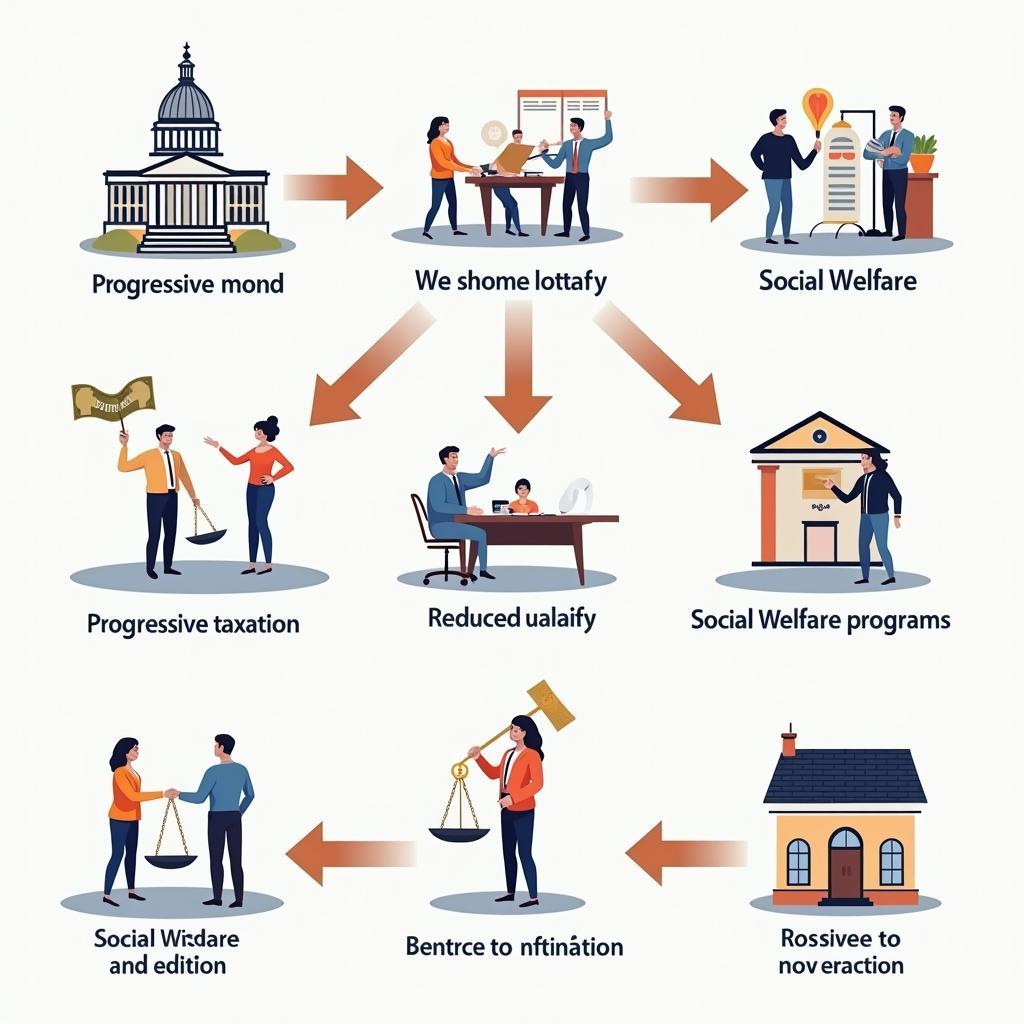Income inequality and the government’s role in addressing it has been a recurring theme in IELTS Writing Task 2, appearing in approximately 15% of tests between 2020-2023. This topic’s frequency suggests its continued relevance for future examinations. Let’s examine one common question type that has appeared in recent tests.
Nội dung bài viết
The role of technology in education equality is closely related to how governments can reduce societal disparities through policy interventions.
Some people believe that governments should focus on reducing the gap between the rich and poor in their countries. To what extent do you agree or disagree with this statement?
Analysis of Question
This question requires candidates to:
- Express their position on government intervention in wealth distribution
- Provide supporting arguments and examples
- Consider potential counterarguments
- Conclude with a clear stance

Sample Essay 1 (Band 8.5)
I strongly agree that governments should prioritize minimizing economic disparities within their societies, as this approach offers numerous societal benefits and promotes sustainable development.
The primary argument for government intervention in wealth distribution lies in its potential to enhance social stability and economic growth. When governments implement How to address income inequality through progressive taxation, they can ensure that wealth is more evenly distributed while maintaining economic incentives. For instance, Nordic countries have successfully maintained both high living standards and relatively low inequality through progressive taxation and comprehensive social programs.
Furthermore, reducing inequality through government action can break intergenerational poverty cycles. By investing in public education, healthcare, and social services, governments can provide opportunities for social mobility to disadvantaged groups. This approach has been particularly successful in countries like South Korea, where significant public investment in education has contributed to remarkable economic development and reduced social disparities.
However, it is crucial that governments balance equality-promoting measures with maintaining economic incentives. While addressing the impact of income inequality on social cohesion, policies should not discourage entrepreneurship or innovation. This can be achieved through targeted support for small businesses, skill development programs, and promoting importance of financial inclusion for economic development.
In conclusion, government intervention to reduce inequality is essential for creating a more equitable and prosperous society, provided it is implemented thoughtfully and maintains economic dynamism.
Key Vocabulary
- economic disparities (n.) /ˌekəˈnɒmɪk dɪˈspærətiz/ – differences in economic status
- intergenerational (adj.) /ˌɪntəˌdʒenəˈreɪʃənəl/ – occurring between generations
- social mobility (n.) /ˈsəʊʃəl məˈbɪləti/ – movement between social classes
- entrepreneurship (n.) /ˌɒntrəprəˈnɜːʃɪp/ – starting and running businesses
- economic dynamism (n.) /ˌekəˈnɒmɪk ˈdaɪnəmɪzəm/ – economic growth and adaptability
Band Score Analysis (8.5)
- Task Response: Clear position with well-developed arguments
- Coherence and Cohesion: Logical organization with effective paragraph links
- Lexical Resource: Sophisticated vocabulary with natural usage
- Grammatical Range: Complex structures used accurately
For practice, readers are encouraged to write their own essays addressing this topic and share them in the comments section. Consider exploring related topics such as education equality, healthcare access, or economic opportunities in developing nations.